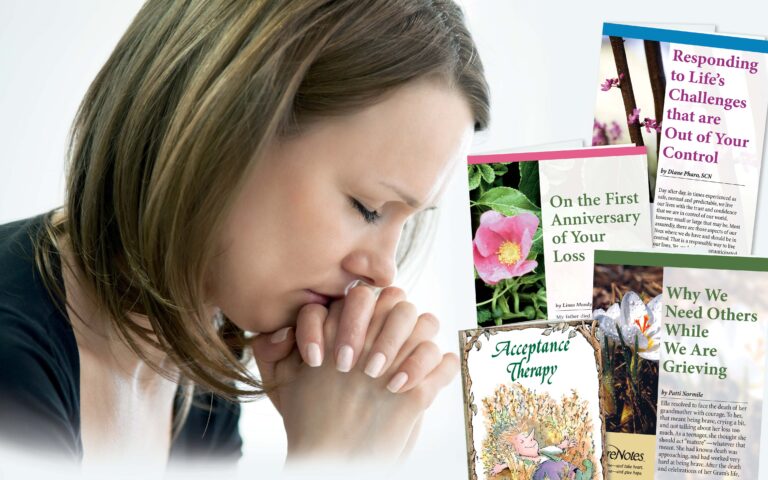Mothers are not perfect and neither are their children. Some mothers are confidants, others are critics. Some mothers maintain control even into their children’s adulthood, and others foster a sense of independence early on. Whatever your relationship with your mother, it is important to acknowledge your feelings and grieve what has been lost when your mother dies.
When you lose your mother, your loss hits on many levels. Here are a few of the losses you may be experiencing:
• Loss of Unconditional Love A mother’s love is often tested, but rarely fails. So when a mother dies, the loss of unconditional love is often a loss that no one else can understand, much less fill.
• Loss of Identity When a mother dies, we lose a piece of who we are. We lose the person whose story provides the beginning of our own, whose sense of self greatly impacts who we are.
• Loss of a Family Connector Through phone conversations, visits, letters, e-mail, and social media, mothers frequently stay in touch with each child. When a mother dies, some families recognize this loss for what it is, and others wonder why they feel as if they have lost touch with siblings. We have to find new ways to remain family and remain connected to one another.
• Loss of Protection There is a sense of security that accompanies the knowledge that even into adulthood, mothers look out for their children, and God help anyone who attempts harm. That shield of protection, both physical and emotional, is lost when a mother dies.
• Loss of Nurturing Touch There is an intimacy between mother and child that makes human touch both natural and comforting and cannot be replicated. The death of a mother means we lose a mother’s hug and caress. We lose the complete physical acceptance that a mother can give.
• Loss of What Could Be Not every mother/child relationship works perfectly, and when a relationship has been particularly difficult, a mother’s death means that the opportunity to make peace face-to-face is gone. That is a loss of another kind, the loss of a dream, of a hope that things could be better. It may feel like there are no more options, no more possibilities for closure, and that means accepting imperfection.
Celebrate memories by telling stories about your mom, wearing her perfume or her jewelry, framing her favorite pictures and giving them as gifts to your children. Bake her favorite pie or make her favorite recipe—it is a bittersweet reminder of the many ways in which she nourished you.
Keep her memory alive not only through stories, but also by making a contribution to a favorite charity, donating books to the library in her name, planting a tree at your place of worship, or endowing a scholarship at the local high school. In cherishing and celebrating memories, you transform your relationship with your mother and ensure that it will endure.
When we lose our mothers, we lose much that can’t be replaced. But we are also left with much to cherish—memories, unique personality traits and strengths, wisdom, and hopefully an example that can inspire us to offer nurturing love to those who remain in our lives. A mother’s love, after all, is never lost if it is passed on.
Excerpt from “Losing Your Mom” from CareNotes






